Text
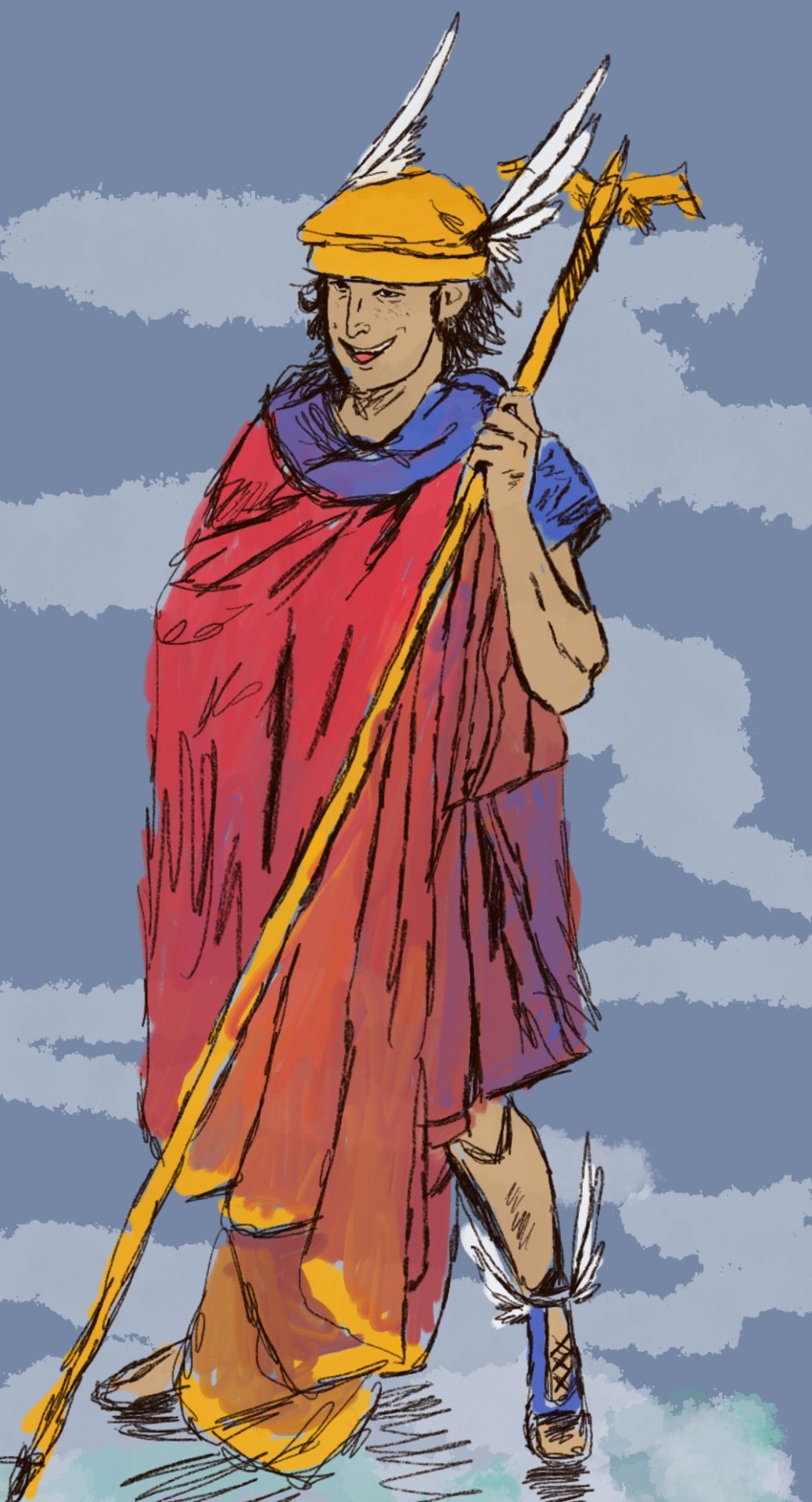
thinks about hermes 24/7
#hermes deity#hermes#hellenic polytheism#hermes worship#hellpol#hermes devotee#hellenic pagan#this is beautiful#I love hermes
198 notes
·
View notes
Text
cant believe i didnt put this up here!
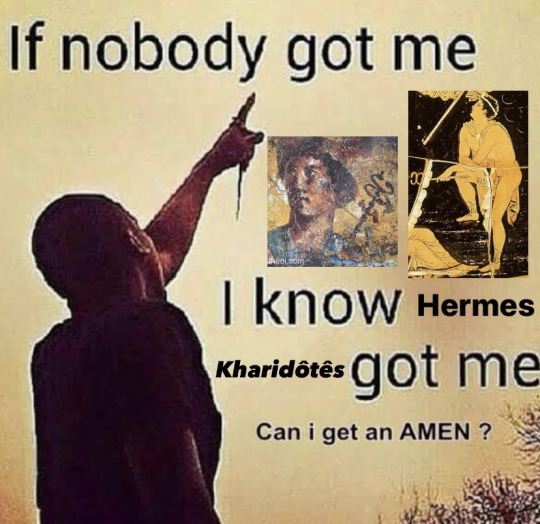
graphic design is my passion
684 notes
·
View notes
Text
another sexy uquiz folks this time it's which greek god would you take as a lover?
14K notes
·
View notes
Text

Silver-tongued Mercury, I sing of you today,
of you, master of the golden wand, hawk-winged, fast-paced messenger,
of you, keeper of paths and roads, one who guides the lost ones, kind traveller,
of you, leader of heralds, brother to shepherds, pipe playing lyre-maker,
of you, lord of robbers and thiefs, deceitful trickster, lie-singing joyous athlete,
of you, friend of man, loving protector, one who does no harm, dear companion,
let my love translate into each tongue for you deserve it,
let my adoration grow by day for there is never enough,
let my trust keep you warm through your long travels
for you are in my heart,
busy one,
and shall remain there forever.

124 notes
·
View notes
Text
Women in Classical Antiquity
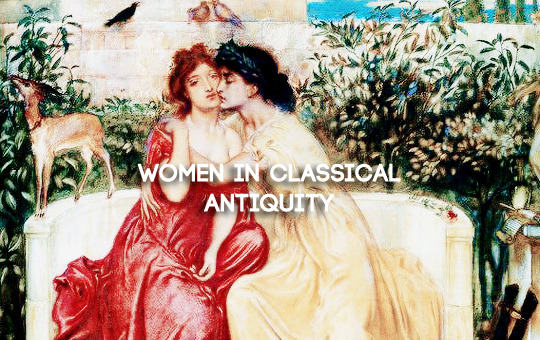
Hey so I’ve compiled a list of surces I have used at some point or other and/or seen reccomended when it comes to the stuy of Women in Classical Antiquity. Feel free to add anything you have also found useful, though please try to keep it mainly to scholarly and balancrf sources.
Historical Studies
New Directions in the Study of Women in the Greco-Roman World by Georgia Tsouvala, Ronnie Ancona
Women in Antiquity: Real Women Across the Ancient World by Jean Macintosh Turfa, Stephanie Lynn Budin
Women and Monarchy in Macedonia by Elizabeth Carney
Roman Women by Eve D'Ambra
Women in Antiquity: New Assessments by Richard Hawley, et al.
A Companion to Women in the Ancient World by Sheila Dillon, Sharon L. James
Pandora’s Daughters: The Role & Status of Women in Greek & Roman Antiquity by Mauren Fant, Mary Lefkowitz
Women in the Classical World: Image and Text by Elaine Fantham, et al.
Women in Greek Myth by Mary Lefkowitz
Women in Classical Antiquity: From Birth to Death by Laura K. McClure
Goddesses, Whores, Wives, and Slaves: Women in Classical Antiquity by Sarah Pomeroy
Spartan Women by Sarah Pomeroy
Women’s History and Ancient History by Sarah Pomeroy
Women in Hellenistic Egypt: From Alexander to Cleopatra by Sarah Pomeroy
Arguments with Silence: Writing the History of Roman Women by Amy Richland
The Women of Pliny’s Letters by Jo-Ann Shelton
Sourcebooks
Clodia: A Sourcebook by Julia Dyson Hejduk
Cleopatra: A Sourcebook by Prudence J. Jones
Women’s Life in Greece and Rome: A Source Book in Translation
by Mary Lefkowitz, Maureen B. Fant
Women in Ancient Greece: A Sourcebook by Bonnie MacLachlan
Women in Ancient Rome: A Sourcebook by Bonnie MacLachlan
Women and Society in Greek and Roman Egypt: A Sourcebook by Jane Rowlandson
Biographies
Zenobia: Shooting Star of Palmyra by Nathanael J. Andrade
Agrippina: Sex, Power, and Politics in the Early Empire by Anthony A. Barrett
Livia: First Lady of Imperial Rome by Anthony A. Barrett
Sabina Augusta: An Imperial Journey by T. Corey Brennan
Arsinoe of Egypt and Macedon: A Royal Life by Elizabeth Carney
Eurydice and the Birth of Macedonian Power by Elizabeth Donnelly Carney
Olympias: Mother of Alexander the Great by Elizabeth Carney
Berenice II and the Golden Age of Ptolemaic Egypt by Dee L. Clayman
Cornelia: Mother of the Gracchi by Suzanne Dixon
Hypatia of Alexandria by Maria Dzielska
Julia Augusti: The Emperor’s Daughter by Elaine Fantham
Clodia: A Sourcebook by Julia Dyson Hejduk
Faustina I and II: Imperial Women of the Golden Age by Barbara M. Levick
Julia Domna: Syrian Empress by Barbara Levick
Turia: A Roman Woman’s Civil War by Josiah Osgood
Cleopatra: A Biography by Duane W. Roller
Cleopatra’s Daughter: and Other Royal Women of the Augustan Age by Duane W. Roller
Clodia Metelli: The Tribune’s Sister by Marilyn Berglund Skinner
Terentia, Tullia and Publilia: The Women of Cicero’s Family by Susan Treggiari
Lectures, Documentaries, & Online Sources
Cleopatra: The Most Famous Woman of Classical Antiquity (Lecure by Dr. Duane Roller, 2021)
Lucretia and the Politics of Violence (Lecture by Dr. Mary Beard, 2019)
Mothers, Murderers and Mistresses: Empresses of Ancient Rome (2013)
Virgil: Aeneid: Women (lecture by Llewelyn Morgan, 2012)
Women in Antiquity: An Online Resource for the Study of Women in the Ancient World
Women Who Made History: Cleopatra (2015)
Women’s Classical Caucus
4K notes
·
View notes
Text
Hermes is both a young and old minded god. He has seen everything, heard everything and experienced many things and yet he has that young soul, seeking adventure and new emotions. He's beautiful for that.
140 notes
·
View notes
Photo




― “Your soul is safe in my hands” / Greek Mythology
God Hermes
159 notes
·
View notes
Text
Hermes, the Messenger & Guide
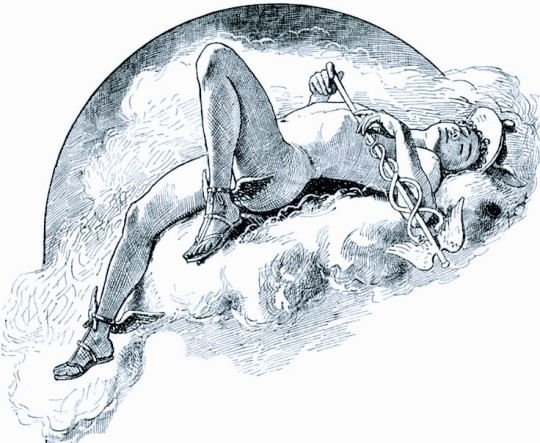
I n t r o d u c t i o n ༄
Hermes is a god of many domains and epithets that span across multiple cultures and history. Some of these associations have even held over into the modern century. For this series, I’ll be writing about specific epithets for him, along with the associated cult worship, history, and connected associations.
It would be remiss of me to not discuss one his most well known and widespread associations ; a messenger of the gods. We can see this association repeated over and over again in multiple myths, whether that be him assisting the gods, heroes, or mortals. First I’ll be discussing his connecting epithets and surnames, followed by cult worship, and lastly his connecting mythos. All three of these play an intertwining and intrinsic part to his worship as a messenger god.
E p i t h e t s ༄
Epithets are one the key ways we’re able to fully understand how the gods were viewed and what their associations were. Epithets were often tied into local worship and mythos, along with personal rituals for said epithet of the god. Something not necessarily unique, but not that common either, was that Hermes did not have a state wide cult worshipped across Greece. He didn’t really even have temples outside a few select ones, such as his temple at Mount Kyllene in Arkadia, the origins of his birth place, as his worship was done out in the everyday lives of the common man. He was worshipped on roads, at gymnasiums, and was a patron of heralds and farmers.
Below you’ll find a list of his epithets relating directly to his aspect as a messenger and guide. First in Greek, followed by the Latin translation, and lastly the English meaning.

C u l t W o r s h i p ༄
As for his cult worship, one of the biggest indicators of his worship as a guide are the hermae, or boundary stones. These stones would be placed on roads as mile markers, and were also associated with ensuring fertility to the local stock and providing luck for the passerby.
“Socrates...proceeded, with the design of educating those of the countryside, to set up figures of Hermes (Hermai) for them along the roads in the midst of the city and every district town .”
Plato, Hipparchus 228d (trans. Lamb) (Greek philosopher C4th B.C.)
One of the most interesting things about these stones was their physical depiction. The stones stood tall on long rectangular blocks with a sculpture of Hermes' head at the top and then towards the middle part was a depiction of a phallus that would be protruding from the stone. As of right now there isn’t any clear indication as to why this is a feature on the stone, other than the possible connection to his aspect as a god of fertility.
The origins of these stones can be found with the Pelesigians, who instructed the Athenians in how to go about creating these markers. This is shown in the quote below from Herodutus, Histories:
"The ithyphallic images of Hermes [i.e. the Hermai]; the production of these came from the Pelasgians [of Arkadia and Thessalia], from whom the Athenians were the first Greeks to take it, and then handed it on to others. For the Athenians were then already counted as Greeks when the Pelasgians came to live in the land with them and thereby began to be considered as Greeks. Whoever has been initiated into the rites of the Kabeiroi, which the Samothrakians learned from the Pelasgians and now practice, understands what my meaning is [the Kabeiroi gods were the keepers of a sacred phallus]. Samothrake was formerly inhabited by those Pelasgians who came to live among the Athenians, and it is from them that the Samothrakians take their rites. The Athenians, then, were the first Greeks to make ithyphallic images of Hermes, and they did this because the Pelasgians taught them. The Pelasgians told a certain sacred tale about this, which is set forth in the Samothrakian mysteries."
There’s also evidence in there possibly being various styles as per the quote below from Pausanias:
"At the Arkadian gate [of Ithome, Messenia] leading to Megalopolis is a Herma of Attic style; for the square form of Herma is Athenian, and the rest adopted it thence."
These statues were the most popular among the Athenians, who had them placed all over the city of Athens and were venerated in honor of Hermes. They would be anointed with olive oil and decorated with laurel leaves, a symbol of great importance amongst the Greeks.
One epithet for him that relates directly to these stones is Hermes Trikephalos, or Hermes the Three Headed. This was a specific hermai that had three heads of hermes pointing to each direction at the crossroads with an inscription of said roads. We also have evidence showing that the nose of the statues were typically rubbed down and polished, most likely due to people rubbing it for good luck and because of Hermes' connection to fertility.
From this we have a clear indication of how Hermes was viewed in everyday life in ancient Greece. He was a part of their walk to work, to the neighbors, and to neighboring towns, directly contradicting the idea that the gods were separate and held only in lofty temples. Hermes was out on the dirt roads with every class of man, woman, and child - he truly was the common man's god.
Outside of the hermai, Hermes statues were traditionally depicted with shoes with wings, a herald's wand, and travelers hat also depicted with wings on each side of it. The wings are a key component to his attributes as they are the main way he’s able to travel and deliver messages for the gods. Lets not forget another one of his most iconic symbols that is used widely throughout the modern world today - the caudecus, or herald's staff. This staff was not only used by Hermes, but by all heralds throughout Greece, who Hermes was a patron of. This staff was derived from the old cattle-herders crock and could possibly be tied back to Hermes' myth about stealing Apollo’s sacred cows.
"Herald : And the gods gathered here, I greet them all; him, too, my own patron, Hermes, beloved herald, of heralds all revered."
Aeschylus, Agamemnon 513 ff
Outside of the heralds, Hermes is a god of birds of omen and the god of dreams, both of which were used to send messages. In relation to his connection with birds of omen, it was said that the birds themselves were dispatched by Apollo and only those who were under his patronage and a seer would be able to distinguish the prophetic messages from those of the regular “idle chatter” of birds.
“Whosoever shall come guided by the call and flight of birds of sure omen, that man shall have advantage through my voice, and I will not deceive him. But whoso shall trust to idly-chattering birds and shall seek to invoke my prophetic art contrary to my will, and to understand more than the eternal gods, I declare that he shall come on an idle journey; yet his gifts I would take . . .’
And from heaven father Zeus himself gave confirmation to his words, and commanded that glorious Hermes should be lord over all birds of omen."
Pseudo-Hyginus, Astronomica 2. 7
We now look to another one of his more popular ways of reaching out and connections - prophecy via dream. While Hypnos was the god of dreams, it was Hermes who delivered these dreams to mortals. Dreams of omen were seen as messages from the gods and ghosts of the dead. It was also heavily debated amongst ancient scholars what counted as a dream of omen, and where in prophetic hierarchy these dreams fell. It was eventually decided that outside of speaking to Oracles themselves, who were known to have a direct connection to the god they served under, dreams where a “natural” form of divination that required no tools compares to other forms of divination, such as pulling lots or using dice, to divine messages.
M y t h o l o g y ༄
Now we’ll focus on looking into various myths that were written by the Greeks depicting Hermes as a messenger. Well start off with one of the most well known writings of Greek mythology ; the Odyssey.
In the Odyssey we first come across Hermes assisting Odysseus on Circe’s island after his men have been turned into pigs. He disguises himself as a tenant of the island and directs Odysseus in how to turn himself immune to Circe’s potion used to turn men into animals. We also see Hermes again later after Odysseus is left abandoned on an island with Calypso for seven years until Hermes appears to him and advises him to sail to Ithaca to start his next journey. From both these instances we see Hermes fit his role as a guide in advising Odysseus during his journey when he was in peril and distraught.
"Zeus who masses the clouds made answer . . . turned to his dear son Hermes : ‘Hermes, you are always our messenger.’"
Homer, Odyssey 5. 4 ff
Another classic resource is his role in Ovid’s Metamorphoses. While Ovid was a Roman writer, his writings’ on the Greek gods have played a major impact on Greek mythology and how the gods are even viewed today. In this piece he’s often described as a messenger of Zeus, or Jupiter, and sent on various errands for the god. In other myths we have him fetching gods to attend weddings, delivering messages to heroes, and escorting the dead. However his role as a psychopomp will be explored in a separate blog that will go into much more detail with his role as a god of boundaries and the afterlife.
Outside of his myths specifically depicting him as a messenger and guide, we can also look to his offspring and their roles as gods. Often more times than not, offspring of the gods, specifically the Olympians, were connected to direct roles that said gods ruled over. A few of his divine children included: Palaistra the goddess of wrestling and Angelia the goddess of messages.
C o n c l u s i o n ༄
In conclusion, Hermes' role as a messenger god spread from the heights of Olympus to the common man on the roads of ancient Greece. We can see his worship in the local hermai that were decorated in laurel leaves and anointed with olive oil, their noses rubbed down till the shined from people hoping to obtain just a little bit of luck for their journey.This is further built up in his various myths where he is sent by Zeus to direct and assist various heroes, and make sure everyone has RSVP accordingly for any important gathering or event. I would argue that his connection as a messenger and guide are exactly why he’s still so apparent within modern culture - he’s a symbol that every person can connect with.
As mentioned at the beginning of this post, this is the first in a series of blogs dedicated to Hermes and his worship. In the following blogs I’ll be discussing roles such as him being a psychopomp, his connection to divination, and his role as trickster god.
S o u r c e s ༄
Ancient Literature
New World Encyclopedia
World History
Theoi
Ancient Greek Divination by Sarah Iles Johnston
247 notes
·
View notes
Text
This is your obligatory Hermes love post
Reblog if you really love Hermes, like if you really love Hermes.
15K notes
·
View notes
Photo

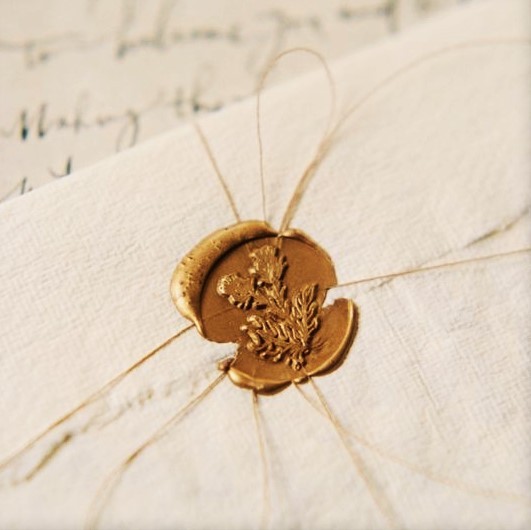








☤ ·Many faces of Hermes: Hermes Chrysorrhapis, or Hermes of the Golden Wand· ☤
Hermes ( Mercury ) wields Caduceus, a golden staff with two snakes wrapped around it. Traditionally, it is associated with a number of things including the planet Mercury, trades, commerce, negotiation, the duty of heralds and other messengers.
Hermes is a Deity traversing across two realms, and a snake is an ancient symbol indicating the crossing of worlds, thus, every area in which reciprocal exchange of gifts, services, and communicative acts is done, is his sphere of influence.
231 notes
·
View notes
Text
What may one say of Hermes of the Winged Feet?
He stole the money that I left on the window
The breeze took it, people said to me.
Light as wind the son of Zeus came, then
And just as rapidly he approached again
After I was almost robbed on the sidewalks
Take your coins, wine and honey, great Lord
O Messenger, bringer of goods, leave naught behind
So you may come again with gifts of luck
and good health and a favourable mind.
106 notes
·
View notes
Text

Hermes🪙🐢⚕️
Messenger of the gods, Guider of Souls to to the Underworld, Olympian God of Herds & Flocks, Travelers & Hospitality, Roads & Trade, Thievery & Cunning, Heralds & Diplomacy, language & writing, athletic contests & gymnasiums, astronomy & astrology
⚕️Invocation:
Keen minded Hermes, light-fingered one, light footed one, quick & cunning, bright & merry, ever watchful, ever agile, ever sharp of wit. The wings at your feet carry you to any landing-place, in any realm; wearing cap of Aidoneus,you tarry, unseen by mortal men, Wielder of the golden sword, player on the shepherds pipe, god of herdsmen, god of thieves, god of cities and pastures, rustic and urbane, you walk the line between contradictions. Hermes of the borderland, Hermes of the threshold, god of the uncertain, consistent and contrary, you stand in the doorway, you stand at the edge; knife-sharp boundary between two worlds is yours. Hermes, child of rich-tressed Maia and Thundering Zeus, I thank you for your many gifts, I praise your might.
⚕️ About Hermes:
Sacred animals: tortoise, ram, hare, & hawk
Sacred Plants: Crocus Flower, & Strawberry Tree
Other Names: Argeiphontes
Cult terms: term relating to his religious praxis
Hermaion: Temple of Hermes
Hermaia: Games & festivals of hermes
Hermai: Pillar statues of Hermes
⚕️ Titles & Epithets:
Epimêlios: Keeper of the flocks
Kriophoros: Ram Bearer
Agoraios: Of the Market Place
Dolios: Of Crafts, Of Wiles
Enagônios: Of the games
Promakhos: Champion
Hermêneutês: Interpreter, Translator
These are just main cult epithets theres much more location based ones & poetic ones
You can make different shrines to specific epithets if desired to connect to different aspects
⚕️ Offerings:
Libations: Milk, Chamomile tea, olive oil, Virgo or Gemini moon water
Mutton
Pork
Beef
Honey
Strawberries
Foreign foods
Eggs
Incense: frankincense, Myrrh, Lavender
Golden objects
Silver objects
Musical instruments
Money/coins
Foreign money/coins
Wands
Dice
Stones: gold, silver, amethyst, quartz, orange topaz, agate
Strawberry or lavender scents
Feathers
Turtle objects, prints or toys
Pictures, statues or art of turtles/tortoises
Crocus flowers
Written stories, letters, jokes, hymns, poems
Travel food
Souvenirs
21+ offerings:
Beer
White wine
Red wine for his Chthonic aspect
Devotional acts:
Learn a new language
Travel to new places
Learn a new sport
Practice speaking in public or online
Practice writing
Learn astrology
Learn astronomy
Learn about agriculture and animal husbandry
Learn slight-of-hand magic tricks
Collect coins
Have a feast in his name
Dice games(including DnD)
Card games
Keep a dream journal
Write stories, poems, hymns, or even jokes
Honor the dead, especially family
Honor Zeus, his father
Honor Maia, his mother
Honor Aphrodite & their child, Hermaphrodite
Honor his other children: Angelia (goddess of messages), Palaistra(goddess of wrestling), Eleusis(goddess of the Eleusinian Mysteries) & Pan(god of shepherds & the wilderness)
Invoke him on your travels or when looking for a job and always thank him when you arrive safely or have some luck in your life
If youre an athlete, small business owner, or travel for work a lot or in general you can invoke him & devote it to him
Support small businesses
Support local ranchers
Support small astrological businesses
Support local athletes & sports teams
Give money to the homeless
Donate to homeless shelters in his name
Altar/Shrine ideas:
Decorate his sacred space with souvenirs from your travels, money/coins(domestic or foreign), turtle statues/art, astronomy art, astrology art, dice, crocus flowers, Statues/Art of Him, gold & silver objects, Amethyst, Orange Crystals
582 notes
·
View notes
Text
THE ONLY GREEK GOD TWINK IS HERMES, APOLLO IS ON THE HUNKIER SIDE OF TWUNK AT BEST. DIONYSUS IS THE GOD OF FEASTING AND ORGIES AND PARTYING DUDE LOOKS LIKE JACK BLACK. HES GOT MEAT. HES GOT CHUB. STOP LYING TO YOURSELF.
#hermes worship#hermes deity#hellpol#hellenic pagan#hellenic polytheism#dionysus#apollon#i love this#op is right
80K notes
·
View notes
Text
30 Days of Hermes
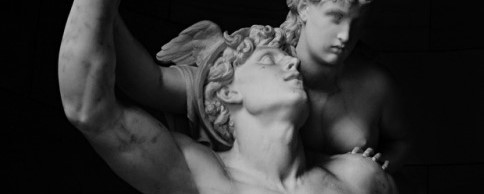
Day 7 - Names and Epithets
I wanted to do a deep dive into his epithets for quite some time so I’m glad I have the opportunity to do that now. I will tryyy to explain a bit more whenever possible. Hope you find it useful even though it’s a bit LONG !
Aglaos - Radiant, Bright, Beautiful, Pleasing - this epithet is shared with Zeus and Hekate, it is used in the homeric hymn to Hermes.
Agoraios - of the Marketplace - referring to his role as god of trade and merchants. Found mainly in Athens, Sparta and Thebes. Statue of Hermes Agoraios would stand near the agora.
Akakêta - Guileless, Gracious - benevolent
Angelos Athanatôn - Messenger of the Gods
Angelos Makarôn - Messenger of the Blessed
Argeiphontês - Slayer of Argos - referring to the myth where Hermes kills the many-eyed giant watching over Io, freeing her
Arkhos Phêlêteôn - Leader of Robbers, Thieves - where the title ‘god of thieves’ comes from
Chrysorrhapis - of the Golden Wand - referring to the herald’s staff, the caduceus
Dais Hetairos - Comrade of the Feast - this one appears in the homeric hymn when he creates an instrument with the tortoise he killed that he will use during the feast he prepared to the gods with one of the cows he stole to Apollo.
Diaktoros - Guide, Messenger - a wildly used epithet for the god who often carries messages or guides gods and mortals through the world. Sometimes seen as ‘‘Athanatos Diaktoros”, the immortal guide.
Dolios - of Crafts, of Wiles - a fitting epithet for the cunning god with a sharp tongue who always finds a way to win with his tricks and sweet words
Dôtor Eaôn - Giver of Good Things - see Kharidôtês
Enagônios - of the Game - referring to his role as god of competition, gymnasium and palestra
Epimêlios - Keeper of the flocks - referring to his role of herdsman
Erikydês - Famous, Glorious, Splendid
Eriounês - Luck-Bringing, Ready-Helper - referring to his role of bringer of good fortune
Euskopos - Keen-Sighted, Watchful - another homeric epithet describing the many qualities of the god
Hermêneutês - Interpretor, Translator - this one is pretty self explanatory, it connects him to the art of translation and is the reason why he is a great patron god for people dealing with foreign languages.
Kharidôtês - Giver of Joy/Grace - this one is oh so lovely ! Referring to the homeric line “Hail Hermes, giver of grace, guide, and giver of good things!”
Kharmophrôn - Glad-Hearted, Heart-Delighting - for He who brings laughter to people and gods
Klepsiphrôn - Deceiver, Dissembler - another epithet connected to his trickster role
Krateros - Strong, Mighty -
Kriophoros - Ram Bearer - it is said that Hermes saved a boetian city from a plague by carrying a ram on his shoulders around the walls of the city. This myth was the origin of a cult practice where young men would carry rams over their shoulders.
Kydimos - Glorious - an homeric epithet praising the god. This one is shared with other gods as well.
Maiados Huios - Son of Maia
Mastêrios - of Searchers -
Mêkhaniôtês - Trickster, Contriver
Oiopolos - Sheep-Tending, Shepherd - again an epithet connecting him to herdsmen
Phêlêtês - Thief, Robber, Rustler
Poikilomêtês - Full of Various Wiles
Polytropos - Wily, Many-Turning - meaning “much-traveled” or “much-wandering, this epithet is applied to Odysseus in the homeric work. Metaphorically it means “turning many ways” or crafty.
Pompaios - the Guide - referring to is role of psychopom, guide of the dead
Poneomenos - Busy One - referring to the fact that he is always busy working and travelling
Promakhos - Champion - Promachos refers to a solider “fighting in the first rank of the palanx”. This epithet is found in Tanagra in Boeotia. Pausanias says that the god led the ephebes to battle carrying a strigil, disguised as a youth.
Trikephalos - Three-Headed (Of Road-Intersections) - epithet shared with Hekate, it refers to his role as god of the crossroads.
351 notes
·
View notes
Quote
The latter [Priapus] was, for obvious reasons, never invited to marriage ceremonies, whereas Hermes would invariably be there, anxious to help, having brought Aphrodite along with him in his chariot. He was the god who ushered the bride into her husband’s house, leading her over the threshold and into the nuptial chamber. Hermes the messenger would then prompt the young couple with suitable words of love, words of seduction; furthermore, as the inventor of fire produced by rubbing two sticks together, he was also active in promoting sexual union between the woman and man who lived together, close to the hearth, within the space that he, Hermes, shared with two other deities, Hestia and Aphrodite.
The Daily Life of the Greek Gods, Giulia Sissa and Marcel Dietienne, p. 238-239 (via noctivague)
55 notes
·
View notes
Text
A Prayer to Hermes: For safe travels
Praise be to Hermes
Son of the Mighty Zeus and Maia
Esteemed God of Travellers
And the Divine Messager
If I have ever been dutiful
If I have ever aided another traveller
If I have ever been a Friend of Man
Bless us with your favour
May our travels be safe
Be they physical
Or emotional journeys
And let our love ones be kept safe
Until we can return to them
#hermes deity#hermes devotee#hermes worship#hellpol#hellenic polytheism#hellenic pagan#first prayer attempt#hellenic prayer#hellenic worship#I tried to make it in the traditional prayer style#think it is okay?#im sure Hermes is cool with it#hes great like that
293 notes
·
View notes
Text
I feel like he enjoys watching us figure it out 😅

accurate image of me when i found out that He’s my patron 3 years ago. (hermes art by @charmophron , meme by me)
142 notes
·
View notes